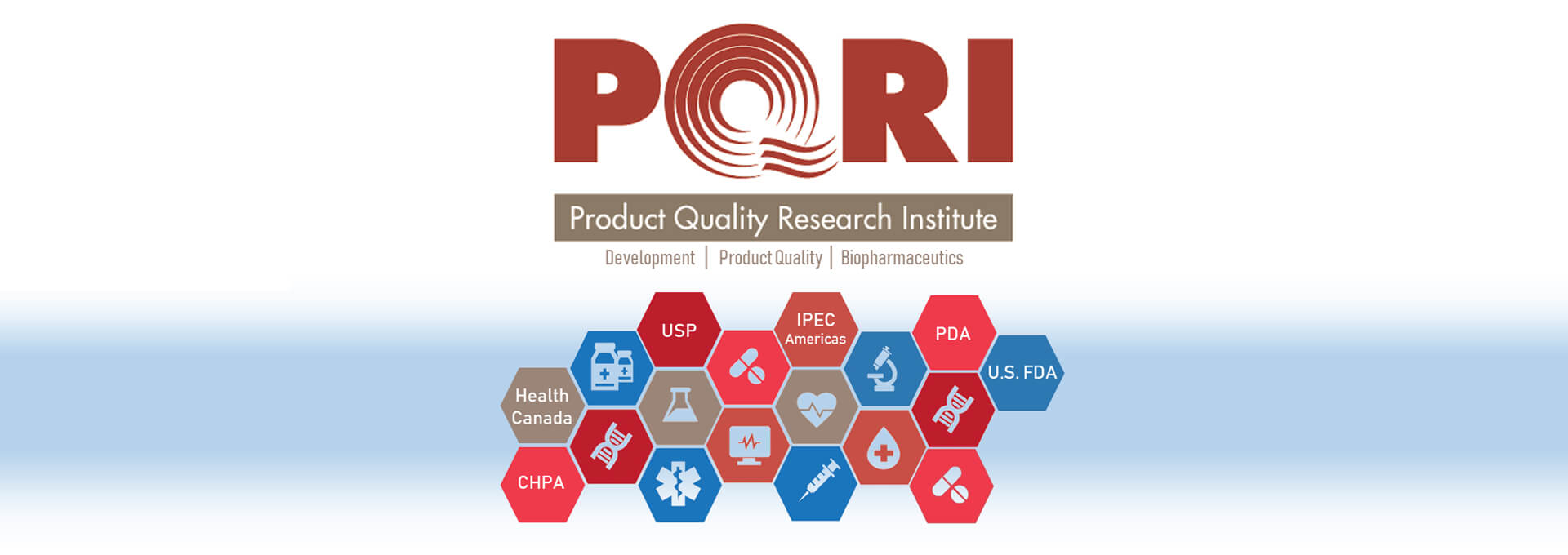The Product Quality Research Institute – Advancing Regulatory Science through Collaboration

For the past two decades, PDA has been a proud member of the Product Quality Research Institute (PQRI), a nonprofit consortium of organizations working together to generate and share timely and impactful information that advances global drug product quality, manufacturing, and regulation.
It is important that all members of the PDA community are aware of PQRI's history and mission, its other sponsors, and how individuals can get involved.
PQRI’s History and Mission
Established in 1999, PQRI originated from a collective effort between FDA’s Office of Pharmaceutical Science (OPS) and several of the pharmaceutical industry’s major trade associations. Their goal was to create a safe haven in which scientists from industry, academia, and regulatory agencies could collaborate to advance science in support of pharmaceutical and biopharmaceutical regulatory guidance.
Recognizing the important role that industry, standard-setting bodies, and regulatory agencies play in driving continuous improvement of pharmaceutical quality standards and methods, PQRI was designed to unite these stakeholders and leverage their combined knowledge, resources, and experience to address emerging regulatory science challenges.
The efforts that PQRI supports help to generate the scientific base needed for the adoption of new, innovative approaches to assuring product quality, safety, and efficacy. PQRI Working Groups have published over 50 research papers and cases studies, organized more than 25 workshops and conferences, and produced data leveraged by regulatory agencies to inform guidances and best practices.
Who are PQRI’s members?
PQRI members are organizations that are invested in the advancement of pharmaceutical regulatory science and technology, which currently include the following:
- Parenteral Drug Association (PDA)
- United States Pharmacopeia (USP)
- Consumer Healthcare Products Association (CHPA)
- U.S. Food and Drug Administration (FDA)
- International Pharmaceutical Excipients Council of the Americas (IPEC-Americas)
- Health Canada
Each member organization is represented on PQRI’s Steering Committee and Technical Committees. The Steering Committee oversees strategic planning of all scientific activities. The following discipline-specific Technical Committees provide guidance, direction and oversight to PQRI working groups and projects.
- Product Quality Technical Committee (PQTC)
- Development Technical Committee (DTC)
- Biopharmaceutics Technical Committee (BTC)
Members of the Technical Committees play an essential role in PQRI by liaising with their organization to identify projects that would benefit from the collaboration facilitated by PQRI and recruiting scientists to contribute to those efforts. In doing so, they work with some of the best and brightest in their field to help shape the future of the industry.
What does PQRI do?
Technical committees work in concert with the Steering Committee to establish working groups, which address timely regulatory science challenges through applied research and knowledge sharing and communicate their findings through technical reports, scientific papers, workshops, seminars, and webinars. Each working group is sponsored by at least one of the member organizations and overseen by the technical committees to whom their work is most relevant.
For example, the PQTC’s mission is to leverage the regulatory, quality, and manufacturing expertise of its members to define science-based approaches that encourage innovation and continuous quality improvement in pharmaceutical manufacturing and flexibility in the associated regulatory processes.
The PQTC currently oversees the following projects:
Artificial Intelligence (A.I.) Application in Continued Verification of Process Project
Members of PDA’s Process Validation Interest Group have partnered with scientists from the University of Barcelona and University of Maryland Baltimore County to establish a standard procedure for continued process verification in fermentation operations, applying A.I. as an analytical method for process control. PDA members can read more about this project in the April 7th PDA Letter Article.
Elemental Impurities Working Group
This group, sponsored by IPEC-Americas, recently completed a large multi-site study to assess analytical impurity methodologies and is planning their fourth workshop to share the study results and discuss industry experiences with the implementation of ICH Q3D. The workshop will take place virtually November 9-10, 2020 and will be preceded by a webinar and public survey. For more information see PQRI’s Events Page.
Restricted Delivery Systems in Children OTC Liquid Medications Project
This CHPA-sponsored project seeks to evaluate the prevalence and effectiveness of different restricted delivery systems used in a wide variety of branded and private label liquid infant and children OTC medicines commonly implicated in accidental exposures. System efficacy will be measured using a standard procedure developed by the group and accepted by ASTM International. Advisors include scientists from the U.S. Centers for Disease Control and Georgia Center for poison control.
Topical Classification System Project
This effort is a joint collaboration between the PQTC and BTC to validate a Topical Drug Classification System (TCS) based on the scientific principles developed for semisolid topical products (SUPAC-SS) and in vitro release of the drug product.
Responses to Proposed Regulatory Guidance
Where guidance is issued for comment by regulatory authorities and the member organizations are aligned on their response, the PQTC submits written comments to the agency, such as with the FDA’s draft guidance on cGMP Practice for Human Drug Compounding Outsourcing Facilities Under Section 503B of the Food, Drug & Cosmetic Act.
How do I get involved?
PDA members that would like to learn more about the PQTC and opportunities to join should contact Glenn Wright, PQTC Chair and PDA’s Vice President of Scientific and Regulatory Affairs, Wright@PDA.org.
For more information on PQRI’s other Committees and projects, check out PQRI’s website (www.PQRI.org) and contact the PQRI Secretariat, PQRISecretariat@pqri.org.


